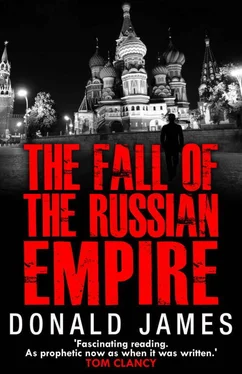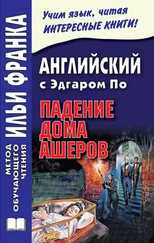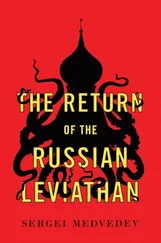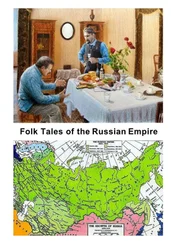“This, Mama,” he said, “is just the entrance hall. We have separate bedrooms, six of them, a separate kitchen, a television room…”
The old lady shook her head. Far from being impressed she looked slightly worried.
This was not good enough for Brezhnev. He called for a limousine and rushed her out of Moscow to his great mansion at Zhukova. Here he showed her the grounds, the dozens of rooms, the tapestries, the helicopter apron with his own private helicopter standing by.
Still the old lady looked more concerned than impressed.
Finally Brezhnev could take it no more. “What is it, Mama?” he asked. “Don’t you find all this just a little bit impressive?”
“Leonid, Leonid…” the old woman is supposed to have answered. “Impressive? Of course I find it impressive. But what worries me is this: What, I ask myself, will happen if the Reds come back?”
Well, it’s a story. Muscovites like it. I tell it because it could happen to me if my mother, God rest her, were alive today.
Perhaps the old don’t understand. Our only hope is that the young do.
They seem to. They seem to take their fistful of privilege as easily as we older ones. Lydia Petrovna, my little secretary, is a case in point. Well, little she isn’t. A nice tall, well-made girl from Sverdlovsk. A working family. But Lydia has made a very sharp estimate of her talents. She’s a good secretary; quick, neat, knows how to cover for a chief like me who likes his bottle.
It didn’t take her long to let me know that she was available. A few hints about a pair of Western shoes on my next visit to Munich or Rome. A slight raising of the eyebrows when I mentioned a party I was planning at Peredelkino.
Sometime around 1980 she became my mistress. I’m not pretending she was the only one, and I never pretended to her. It was an arrangement. She wanted to dress like a Westerner, live among the vlasti , and I liked a pretty girl around.
Strangely enough it was through Lydia that I first heard about Kuletsyn. It’s odd to think that this may well go down in literary history as my claim to fame, me, Igor Alexandrovich Bukansky.
How did it happen now? There had been a big party at the dacha the night before. Some foreign correspondents, one or two of the younger general staff, a few provincial Party people. When I say we drank a lot I don’t exaggerate. The party started on Friday evening and went on the whole weekend. New people arrived, others left.
Saturday morning, I think it was, I was lying in bed. Lydia had first got up to get me what the American correspondents christened a Morning Glory, a half-pint of vodka heated with sliced lemon and a twist of paprika. My own creation for the morning after.
She came back with a tall glass in one hand and a thick typescript balanced on the palm of the other.
“Igor Alexandrovich,” she said diffidently. She was standing there, near naked by the side of the bed, “I have tried not to take advantage of our friendship.”
I took the Morning Glory from her.
“It’s true you’ve given me a great deal, clothes, parties like this, holidays…”
I gulped the lemon vodka. It lifted my head pleasantly.
“But perhaps you don’t know how difficult it can be to be the secretary to an important man.”
“Get into bed and tell me,” I said like some capitalist mogul from a Hollywood movie.
She sat on the side of the bed. “People ask me constantly to put their work before you. I have never done it.”
She paused, holding the typescript in both hands.
“I have an uncle. My mother’s brother. His name is Kuletsyn, Valentin Sergeivich Kuletsyn. My mother begged me to give this to you.”
She was almost in tears. She thrust the dog-eared manuscript forward.
“Forgive me, Igor Alexandrovich, I would do this for no one else.”
She knew which side her bread was buttered. Why ask favors for others when you can ask them for yourself? But I didn’t blame her. She was an honest enough gold digger.
I took the manuscript. It was entitled: To Be Preserved Forever .
“To Be Preserved Forever,” I should explain, is the stamp placed by the KGB on the dossiers of all dissenters.
The irony appealed to me.
Lydia went to take a bath. I sipped my Morning Glory and started to read. After twenty pages I could feel that excitement rising in the throat. It was, of course, quite unpublishable. But by the time she came back I knew that the manuscript of Valentin Kuletsyn was an authentic work of genius.
Who were they, this group of old people waiting in the lobby of the Kalasty Clinic so late at night? With the exception of the one woman among them, they were mostly approaching seventy, some a few years more, and one or two, sitting gray-faced in the vinyl armchairs, were clearly into their eighties. Were they perhaps a group of old folk long forgotten by the hospital authorities, waiting deferentially for X-ray results or news of a sick relative? Some were without ties, their shirt collars buttoned above shapeless dark suits. Others were sunk deep in their overcoat collars. Nobody spoke. From time to time an old man yawned out a mouthful of cigarette smoke. Old eyelids closed and opened with a guilty start. It was 1:45 A.M., Moscow time, and the Politburo of the Soviet Union were waiting for the doctors’ announcement on the condition of their President, Mikhail Romanovsky.
It was the legacy of the Soviet system of government that even after years of working together they were still unable to guess the direction of each other’s thoughts. Who did old Brostov, the “kingmaker,” favor to succeed the ailing, perhaps at this very moment dying, President? Who did dour ex-Foreign Secretary Gromyko incline towards? A noncandidate himself because of his lack of a power base in the Party, the military or the bureaucracy, his goodwill, if any had ever existed behind the dark eyebrows and set mouth, would be vitally important to any contender for the leadership. And who were the challengers for this, along with the Presidency of the United States the most powerful position in the world?
Nobody in the drab waiting room of the Kalasty Clinic that night doubted the claim of KGB General Semyon Kuba, Head of the Committee for State Security. President Romanovsky’s downstairs neighbor in the apartment block on Kutuzov Prospekt, Kuba, at sixty-four, was one of the youngest members of the Politburo.
Some claimed for the mind of Semyon Trofimovich Kuba the same inscrutably evil workings as that of his predecessor, Stalin’s hangman, Lavrenti Beria. Certainly as the internal problems of the Soviet state increased in severity during the first years of the eighties, Kuba’s solutions had seemed never to extend beyond the concentration camp and the psychiatric asylum.
He was popular though, with Brostov the kingmaker and the aging majority of the Politburo from the simple fact that he saw all the Soviet Union’s problems in terms of maintaining the status quo. The Communist Party must remain utterly supreme. The Russian Federal Republic must continue its “elder Brother” domination of the rest of the Union’s other fourteen autonomous republics. Above all the Soviet Union must, he stated again and again in those years, continue to maintain the status quo in the peoples’ democracies of Hungary, Czechoslovakia, Rumania…
Yet the short Romanovsky years had seen the emergence of another figure who in the early eighties had been virtually unknown to anyone but a few Kremlin-watchers in the West.
The one woman who sat among the men in the Kalasty Clinic, chain-smoking a pack of Belomors cigarettes, had occupied, since the death of Leonid Brezhnev, one of the most powerful positions in the Party — the Chairmanship of the Russian Socialist Federal Republic, that huge segment of the Soviet Union which stretched from Leningrad to the Pacific.
Читать дальше












